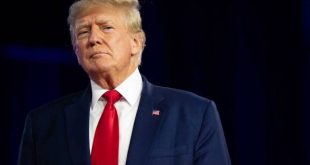By Lami Victor, KADUNA |
The Federal Government of Nigeria has commenced discussions with the World Bank for the rollout of an extensive 90,000 km fibre-optic cable network.
This initiative follows the government’s approval of a special purpose vehicle (SPV) to facilitate this ambitious project.
Bosun Tijani, the Minister of Communications and Digital Economy, announced the commencement of these talks during the kickoff of Nigeria Week in Washington, United States.
The initiative aims to expand Nigeria’s current fibre optic infrastructure from 35,000 km to 125,000 km, positioning it as Africa’s third-longest terrestrial fibre optic backbone after South Africa and Egypt.
Tijani, a tech advocate and co-founder of Nigeria’s first tech hub, CcHUB, noted the critical importance of broadband for Nigeria’s digital economy.
Over the past six months, he has actively engaged with various stakeholders to drive this project forward.
“A great kickoff for Nigeria Week today at the World Bank headquarters in Washington, DC. Excellent discussions with the World Bank Global Digital Development team on our digital economy agenda, particularly our plans to build out a 90,000 km fibre optic network,” Tijani shared on X (formerly Twitter).
Prior to traveling to Washington, the minister held virtual meetings with World Bank representatives to discuss priority areas for Nigeria’s digital trade, drawing on insights from a recent Digital Trade Policy Gap Analysis.
In addition to improving broadband penetration, which is currently below 50%, the minister has also developed an artificial intelligence roadmap, collaborating with around 120 researchers.
On Monday, Tijani reaffirmed his commitment to strengthening Nigeria’s connectivity infrastructure.
He expressed gratitude for the increasing support from partners in deploying fibre optic connectivity across the nation.
The Federal Government assigned an SPV for this project in May, with the aim of modeling it on some of Nigeria’s best public-private partnerships.
The expanded connectivity is expected to link over 200,000 educational, healthcare, and social institutions, integrating more Nigerians into the benefits of internet connectivity.
Nigeria aims to achieve a broadband penetration rate of 70% and population coverage of 90% by 2025, as outlined in the National Broadband Plan 2020–2025.
However, challenges such as insufficient fibre infrastructure, high Right of Way (RoW) fees imposed by state governments, security issues, limited foreign exchange access, and multiple taxation have hindered progress.
The World Bank estimates that $6 billion in annual investments is required to bridge Africa’s digital divide and ensure widespread access to digital technologies.
Meanwhile, the Nigerian Communications Commission has secured RoW fee waivers in six states, which is expected to significantly benefit the telecommunications industry.
Discussions are ongoing with additional states to secure further waivers.
 National Telescope national telescope newspaper
National Telescope national telescope newspaper



